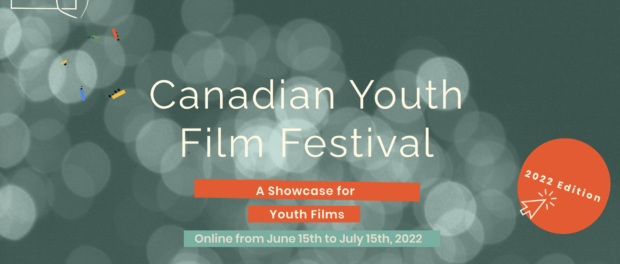Filmmakers of the Future at the Canadian Youth Film Festival
“Who will be the next great filmmaker of the future?” is a question cinemaniacs love to ask. But the filmmakers of the future often start as young filmmakers of the present. With no where to showcase the films made by their own students, Emma June Huebner and Julie Talbot, two Montreal-based researchers and educators, created Festival Canadien de Cinéma Jeunesse – Canadian Youth Film Festival. The festival’s purpose is both to showcase short films under four minutes made by young creators and support teachers that teach filmmaking in the classroom.
Huebner explains that both she and Talbot were working as educators and wanted a place for their students to submit their films. Finding none, they created their own and spent a summer developing pedagogical materials for educators about teaching filmmaking, finding a jury, and setting the entire online festival.
Huebner explains that a film-focused festival makes sense because students today live in a media world and consume a lot of screens. She explains that the festival allows students to tell their stories in a way that is both familiar and provides an avenue into their experiences. “The main root of project is that students feel comfortable expressing themselves through film. They have confidence with the medium because they’ve seen it so much,” Huebner says. “Students feel empowered to represent their lived experience and they can touch upon their anxieties and existential questions. It gives a sense of empowerment for youth.”
Students from all over Canada participated by sending in four minute and under films. All different types were submitted including animation, stop motion, live action, and rotoscoping. The genres included romance, comedy, documentary style films. “I was moved by films that talk about mental health and existential questions,” Huebner says. “There’s a really funny comedy about a boy who is invisible and tries to get the attention of others. It draws attention to other questions. And some are very, very creative. Elementary school kids go wild with their ideas. One was about a YouTuber who loses his pizza on his way to I don’t know where. Every film is a piece of art. It’s really the septième art.”
Many of the films were made on cell phones and a number of them involve teams of students working together, though there are some solo projects. “We had a lot of consent forms,” said Huebner. “We asked that all students who are part of the project be acknowledged. Students had to be the main artistic voice of the project.”
Emphasis was also put on copyright and fair use. “You had to use your own images and you had to use copyright-free music.” Huebner says. “In school is the first time students hear about copyright.” There are resources on the website for the festival for finding and using acceptable sounds and music.
In the end over 85 films were submitted, and a volunteer jury of professionals evaluated the films to select winners in different categories. The three-person jury of Torill Kove who won an Oscar in 2007, Khoa Lê, and Jean-François Caissy, gave feedback on the juried films and selected winners for primary school and high school (cycle 1 and 2 were judged separately). A people’s choice award was also given ou.
Just as the films themselves can be highly collaborative events, Huebner emphasizes how the festival itself is a team project with Talbot. “We met in graduate school,” says Huebner. “It’s a team effort. We wouldn’t have been able to do it without one another.”
The success of the festival in 2022 may mean that Talbot and Huebner will be vetting far more films in 2023.
Festival Canadien de Cinéma Jeunesse – Canadian Youth Film Festival took place online from June 15 – July 15, 2022. You can still access the site HERE. Films are accessible on VIMEO HERE.

